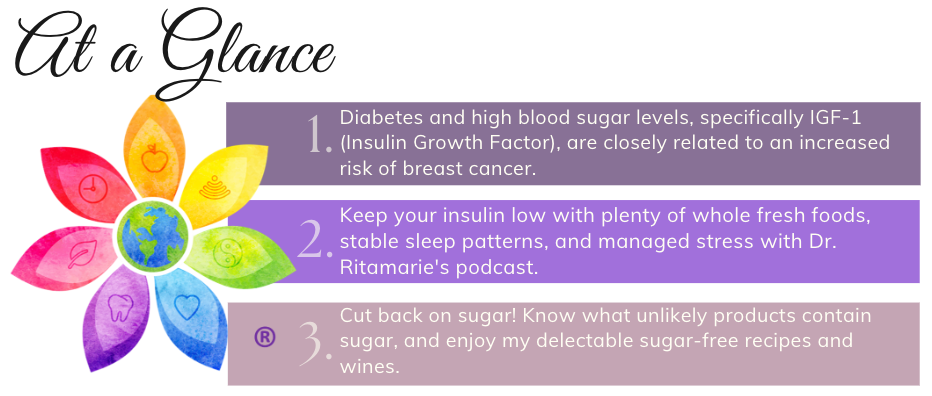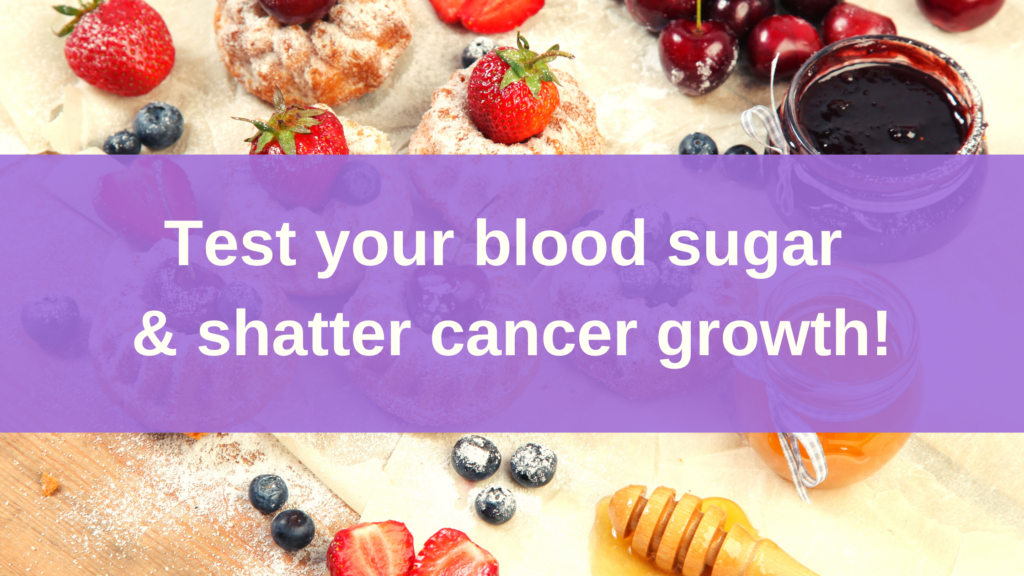
What does my blood sugar have to do with breast cancer?
It has become common knowledge that excessive amounts of carbs and sugar result in into high blood sugar levels in the body. High blood sugar leads to diabetes, heart disease, headaches, fatigue, vision problems, weight issues, and ultimately inflammation, which is the root cause of all dis-ease. This is still very true, and new 2020 research from the NCBI has shown evidence that diabetes and high blood sugar promote breast cancer proliferation.
Sugar sneaks cancer in
Sugar is a sneaky one; it isn’t just found in ice cream and cookies. Did you know that most barbecue and pasta sauces contain sugar? Sugar also goes undercover in 56 other names. Yes, there truly are 56 (and counting!) different names for sugar! Diastatic malt, maltose, dextrose, ethyl maltol, corn syrup, and treacle, are all just clever names for what is spiking up your blood sugar levels without even knowing it. This is also how the typical American adult daily consumes about 34 teaspoons of sugar daily––3x the maximum amount recommended by the U.S. Department of Agriculture dietary guidelines. And, those guidelines (which often can be influenced by those funding the study) are for a typical person, not someone conquering cancer and other dis-eases.
Glucose (a simple sugar) comes from the Greek word “sweet.” Glucose gets into your body from eating grains, refined flour products, fruit juices, and white rice, for example. Cancer cells have more insulin receptor sites for glucose compared to your healthy cells, which means that cancer cells get fed first when it comes to your blood sugar. The technology used in a PET scan relies on the fact that cancer cells get fed first.
Sugar revs up your blood sugar and can stimulate breast cancer cell growth. For a deep dive into how sugar fuels cancer growth, please read this blog post.
How to test your blood sugar
During my second healing journey, I discovered the relationship between insulin resistance, high blood sugar and cancer pathways that accelarate the growth of breast cancer. That is why I chose to work hard at lowering my carbs and monitoring the effects of my food choices on my blood sugar. It was encouraging to see that the changes I made were slowly being relfected in my blood sugar levels.
You too can be empowered to turn off the power of glucose from fueling the cancer cells, by what you eat––or really what you do NOT eat. Please take a moment to read this blog post, and consider monitoring blood sugar levels with this helpful Bayer Contour Next EZ Blood Glucose Monitoring Kit. I suggest testing your blood sugar first thing in the morning and 1-2 hours after each meal. Below is a 1 minute video that goes into more detail about when, how, and why you should test your blood sugar levels.
Diabetes and breast cancer
Studies show a direct link between diabetes and many kinds of cancer. In fact, a joint US-Canadian study of 600 postmenopausal breast cancer patients found a definite connection between high insulin levels, obesity, and a higher incidence of breast cancer. This is also why the mortality rate of cancer patients is higher for patients who have diabetes. The connection has to do with insulin-like growth factor 1 (IGF-1).
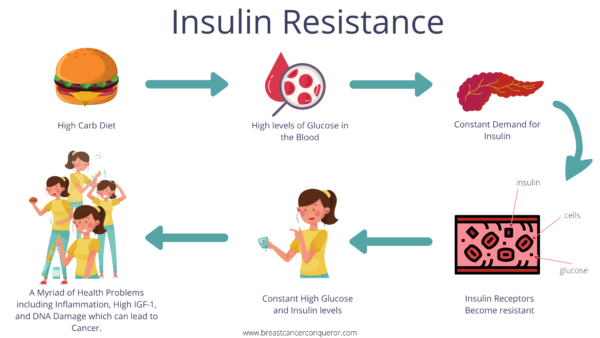
IGF-1 (Insulin Growth Factor) and breast cancer
IGF-1 is a protein that has a “non-suppressible insulin-like activity.” This hormonal substance is produced by the liver. Its main job is to promote cell growth and has been shown to suppress the immune system of postmenopausal women with breast cancer. While IGF-1 is vital for early childhood development, too much of it can be dangerous for adults. A 2014 report in the International Journal of Cancer found active communication between IGF-1 proteins, estrogen hormones, and cellular receptor sites in mammary glands.
The researchers concluded that high IGF-1 levels could indicate a
higher risk for ER-positive breast cancer.
Other studies have linked ICF-1 to lower immune function and a
higher incidence of “dense breast syndrome.”
Growth hormones in commercial meats and dairy contribute to the increase of IGF-1. Refined carbohydrates and sugars have a stimulatory effect on IGF-1. A simple blood test can determine your IGF-1 levels. Next time you are getting any blood work done, ask for these tests to be added: IGF-1, Homocysteine, HS C Reactive Protein, ESR, LDH and Vitamin D3. They are simple markers that may give you some insight into the inflammatory and methylation processes in your body that could be linked to increased cancer risk. If your doctor does not want to order these tests for you, you can order them through my BCC Lab.
How do I balance my blood sugar and insulin levels?
Dr. Ritamarie is a licensed Doctor of Chiropractic with Certifications in Acupuncture, Nutrition, Herbal Medicine, and HeartMath®, as well as the founder of The Institute of Nutritional Endocrinology. She helps women become detectives and figure out what is causing insulin resistance and spikes in their bodies. Are you feeling foggy after doing something that most 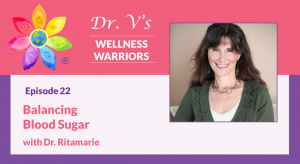 people say is really healthy, like drinking fresh juice? Are you eating well, exercising, and managing your stress but preventing yourself from getting a solid night’s sleep? What is stress doing to your nervous system?
people say is really healthy, like drinking fresh juice? Are you eating well, exercising, and managing your stress but preventing yourself from getting a solid night’s sleep? What is stress doing to your nervous system?
To learn how blood sugar relates to issues in the body, such as inflammation, fatigue, brain fog, cardiovascular disease, and cancer, I highly suggest listening to my podcast episode with Dr. Ritamarie. In this episode, you will also discover how HeartMath® can help you understand your body better and get into a state of calm, rest, and recovery.
Foods and supplements to reduce blood sugar
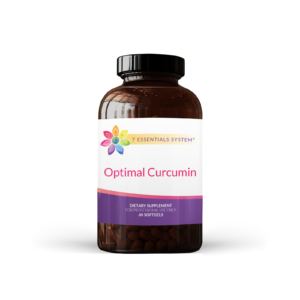 There are foods and supplements that offer natural ways to reduce insulin resistance, heal metabolic disorders, and lower blood sugar.
There are foods and supplements that offer natural ways to reduce insulin resistance, heal metabolic disorders, and lower blood sugar.
-
- Berries. If your meal includes berries, your body will require less insulin to digest it. Please review the study here and learn more about the power of blueberries here.
- Turmeric. In a groundbreaking study, none of the prediabetic patients who took turmeric/curcumin developed Type 2 Diabetes. You can order Optimal Curcumin here and learn more about all its healing powers here.
- Black Cumin. This study discovered that only two grams of black seed each day can significantly reduce blood sugar and glycation end-product formation and improve insulin resistance. You can order Black Cumin/Black Seed Oil and learn more via this blog post.
Delicious gluten-free and sugar-free desserts!
Thanks to the delectable, traditional, and comforting recipes below, you don’t have to stress about the ingredients. All of these are gluten and sugar-free, and low-inflammatory desserts that you and your family and friends will love!
- Mini Apple Pies. Nothing smells like tradition, warmth, and happiness like an apple pie! Serve warm with homemade coconut whipped cream.
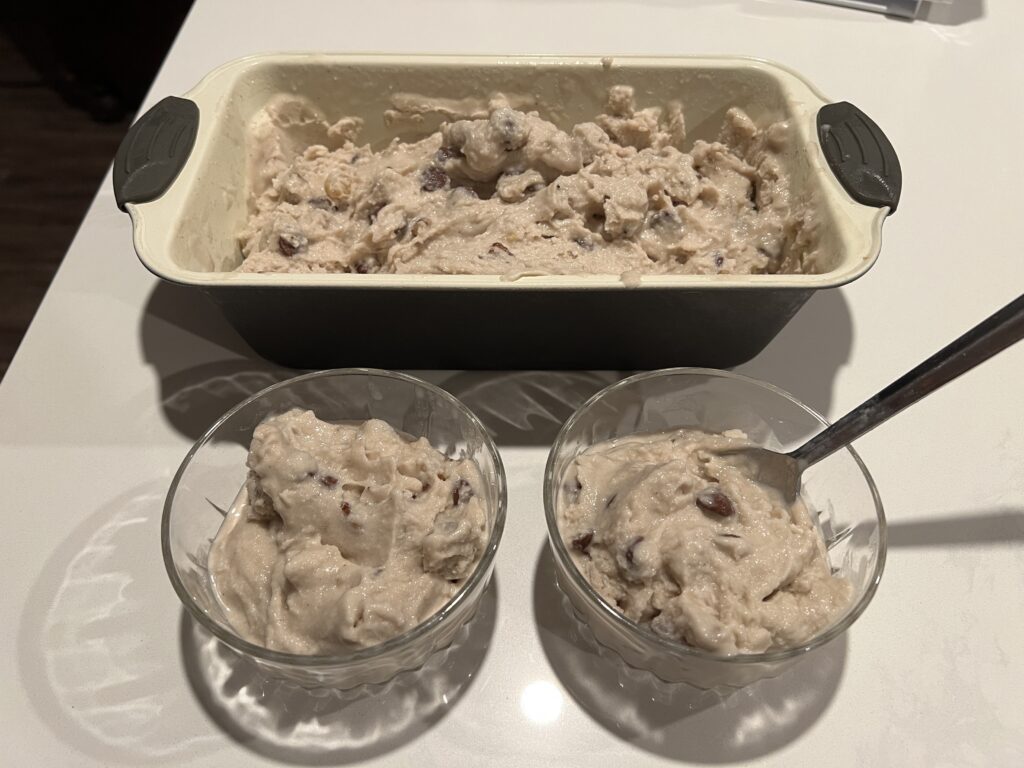
- Raw Vegan Pumpkin Pie. This pie is truly mouth-watering and packed with cancer-fighting goodness! What a treat!
- Chocolate & Flax Pudding. This luscious treat fuels your body with powerhouse nutrients. For example, flax seeds inhibit the growth of estrogen-dependent breast cancer and even strengthen the effects of tamoxifen.
- Blueberry Chocolate Bark. These are super helpful to keep on hand for when you just need that little bite of chocolate. Satisfying and packed with cancer-stopping antioxidants and superfoods—how sweet is that?!
- Coconut Banana Ice Cream. It’s a cold, creamy dream boat! It tastes just like chunky monkey ice cream—minus the sugar, dairy, and artificial toxins!
When making your favorite dishes, remember that you can just trade in regular sugar for Monkfruit sugar or Stevia. Regular flour can be swapped for almond, coconut, or millet flour. You don’t have to miss out! Also, check out the hundreds of recipes on my website! Bon Appétit!
Guilt-free Wine
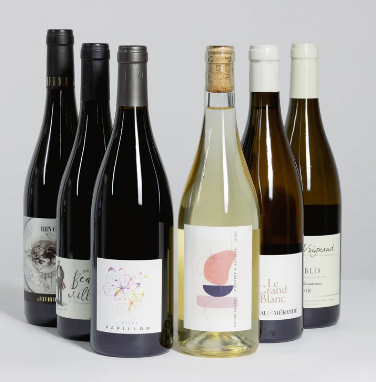 During my second healing journey with breast cancer, I was introduced to a compnay that travelled the world to small, non-toxic vineyards . I do enjoy an occasional glass of wine during special moments—I am French, after all. I discovered a major difference between “naturally produced” wines and commercial ones. This is why I only buy wine from Dry Farm Wines. Dry Farm Wines is the largest natural wine distributor in the U.S. The company works with over 700 small farm operations, all of which are located outside of the U.S. (mostly in Europe and Latin America).
During my second healing journey with breast cancer, I was introduced to a compnay that travelled the world to small, non-toxic vineyards . I do enjoy an occasional glass of wine during special moments—I am French, after all. I discovered a major difference between “naturally produced” wines and commercial ones. This is why I only buy wine from Dry Farm Wines. Dry Farm Wines is the largest natural wine distributor in the U.S. The company works with over 700 small farm operations, all of which are located outside of the U.S. (mostly in Europe and Latin America).
Dry Farm Wines sell exquisite naturally-produced, small-batch wines that are good for you and the earth. They are sugar-free, free of toxic additives, and every bottle is lab-tested through an independent enologist. Pure Natural Wine is rare, so rare that about 0.01% of the world’s wine meets the strict criteria. Click here to learn more about the money-driven “dark side” of the wine industry in the US, and why it is so important to drink Natural Wine versus commercial and even organic.
As my gift to you, enjoy a free bottle and feel the return to real, honest wine rich in antioxidant grapes, and every sip is pure and vibrant. Use this link to receive your free bottle with your first purchase.
